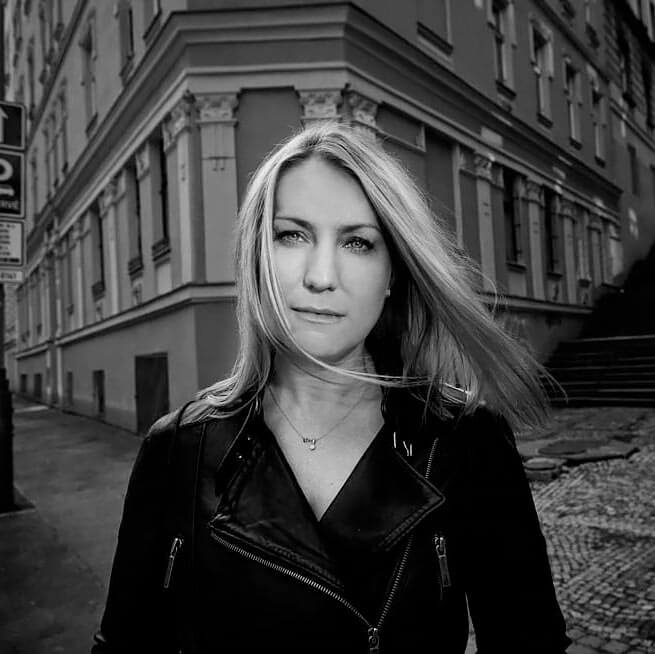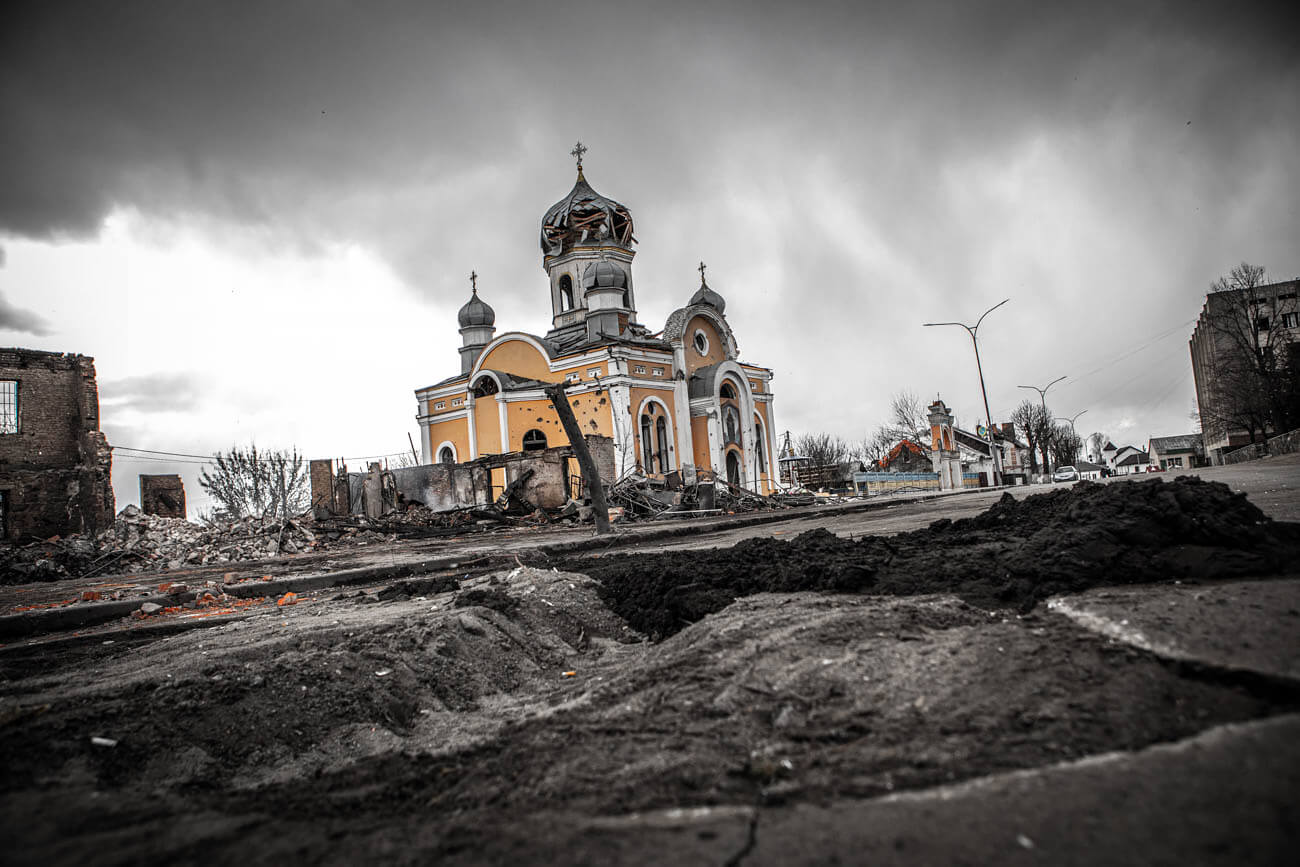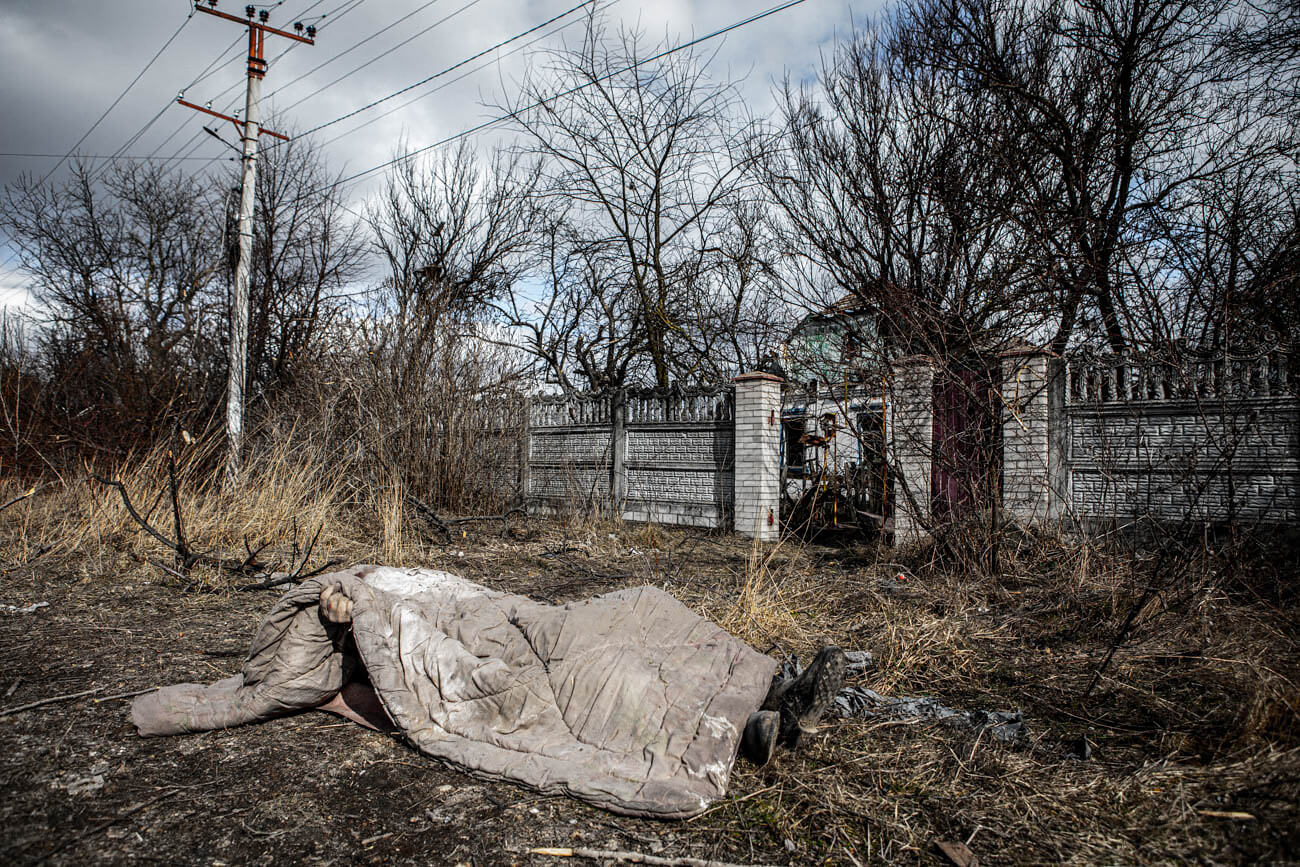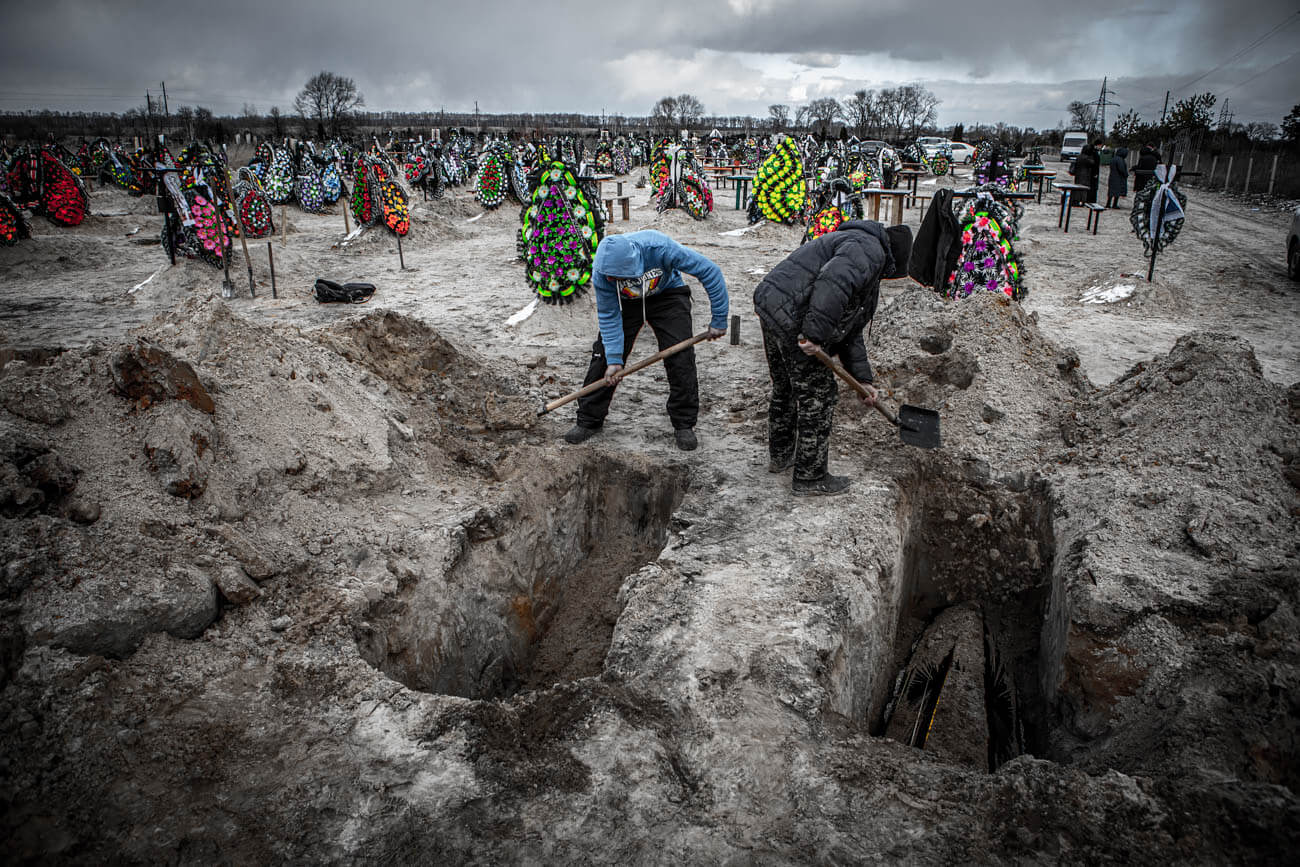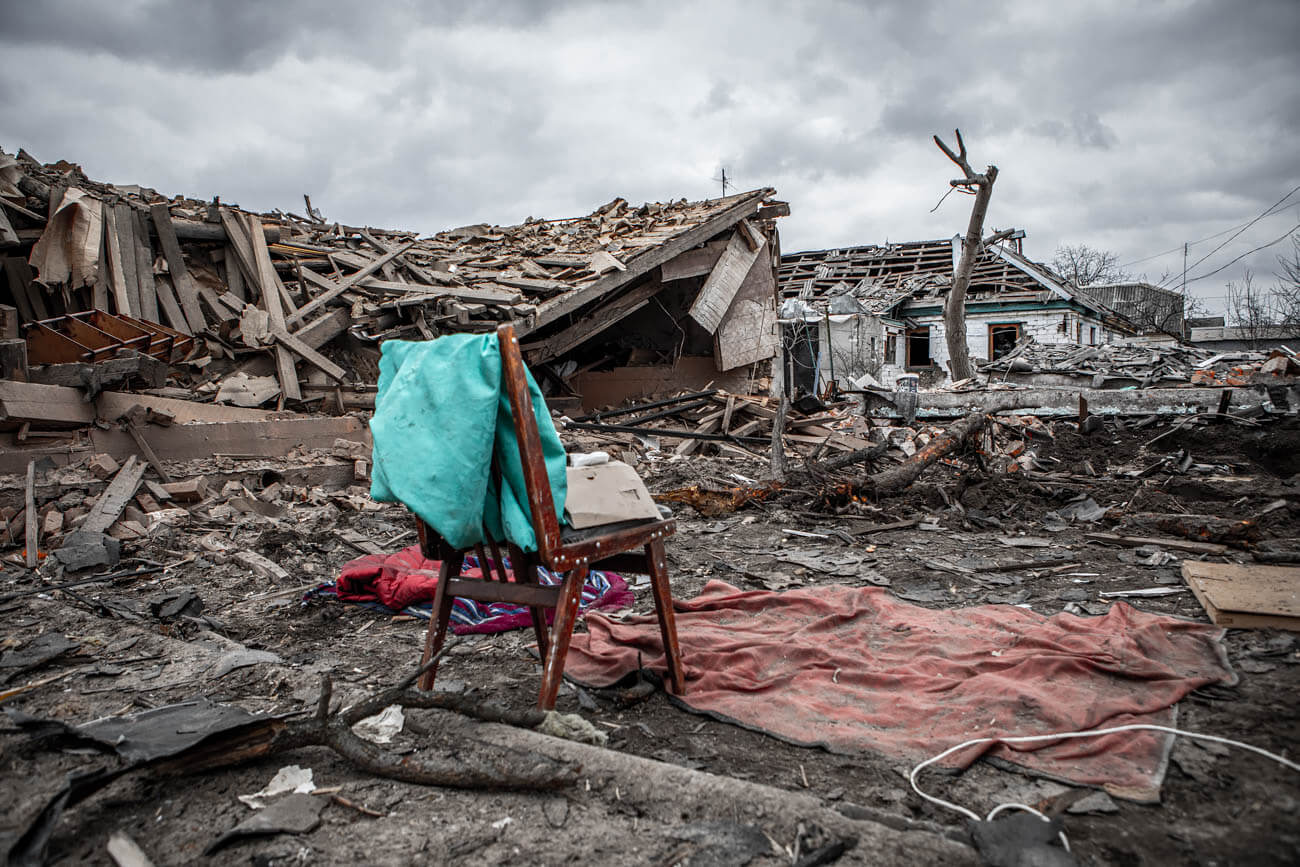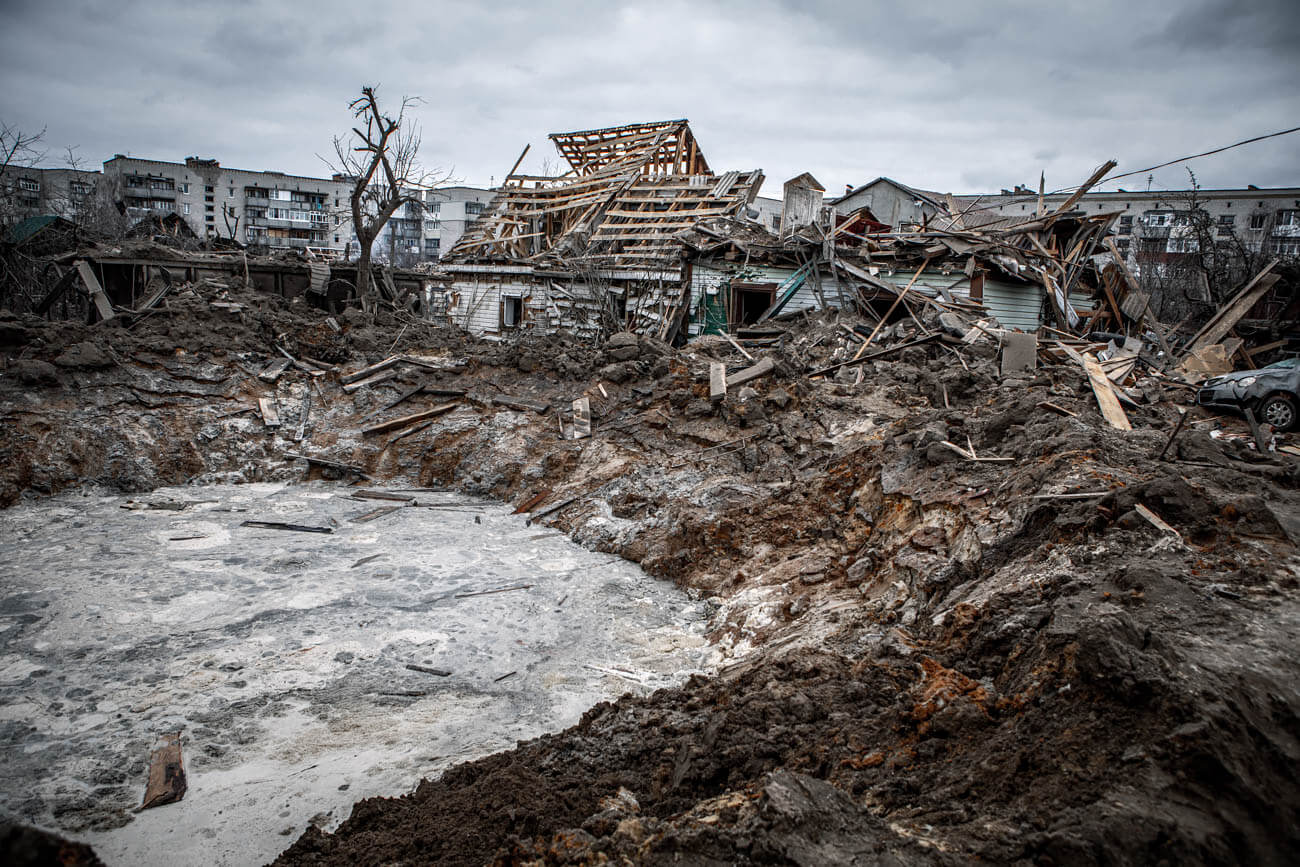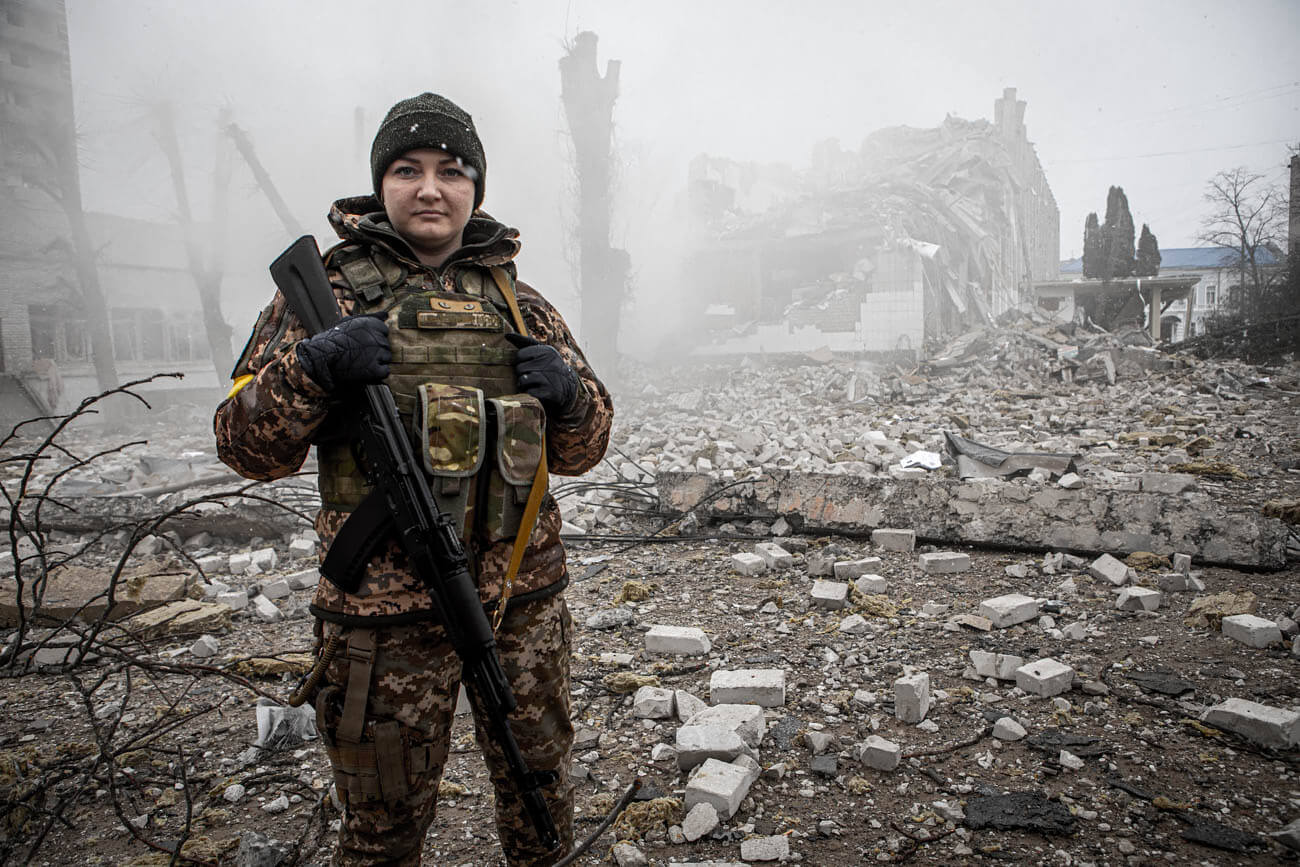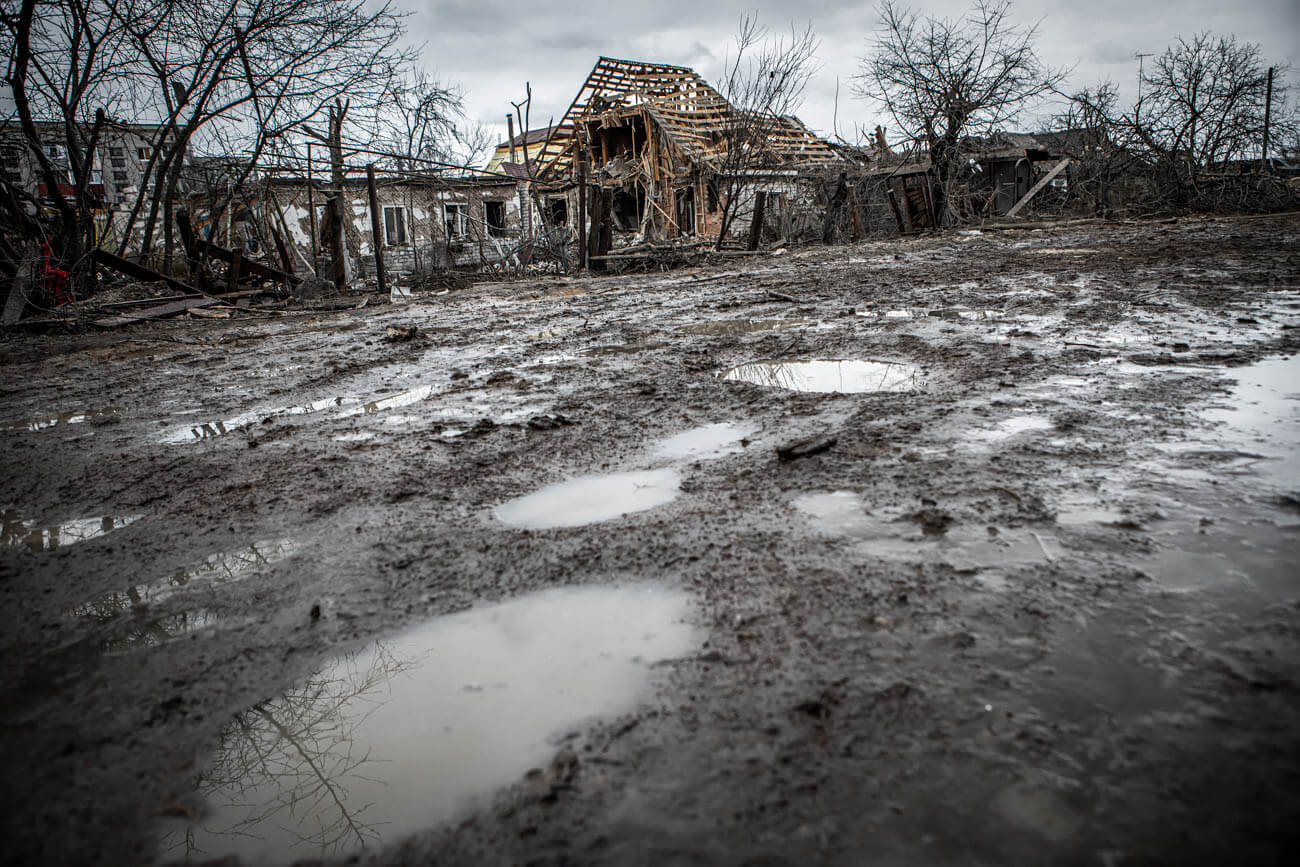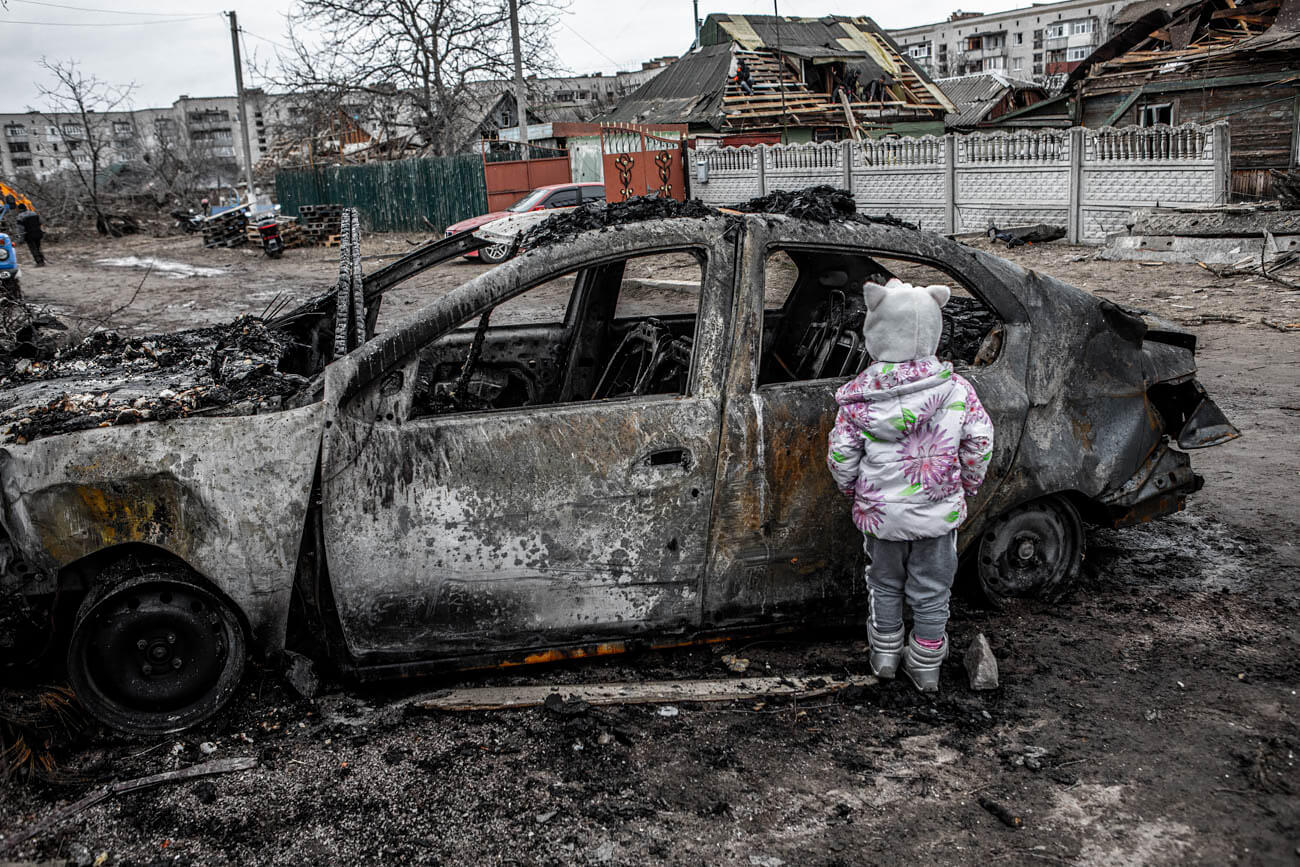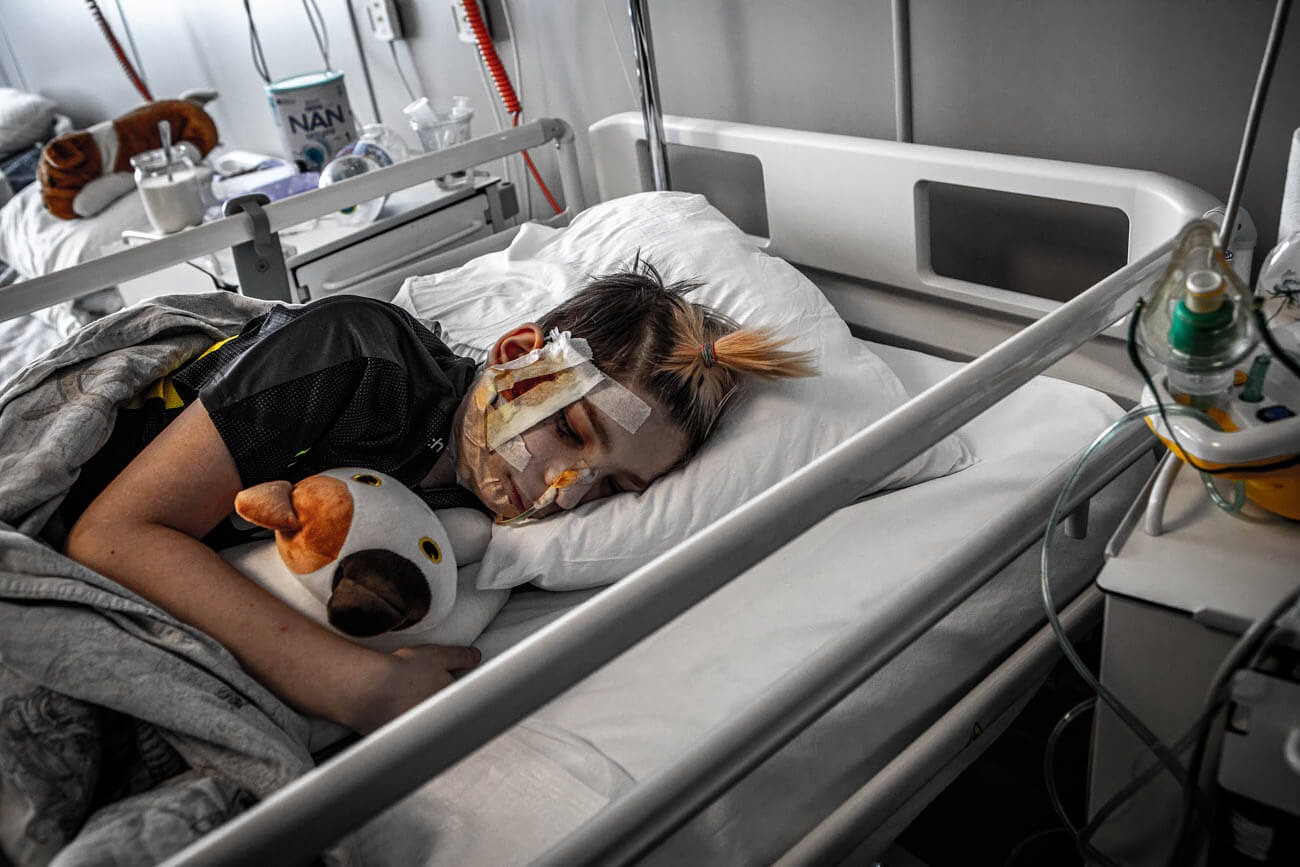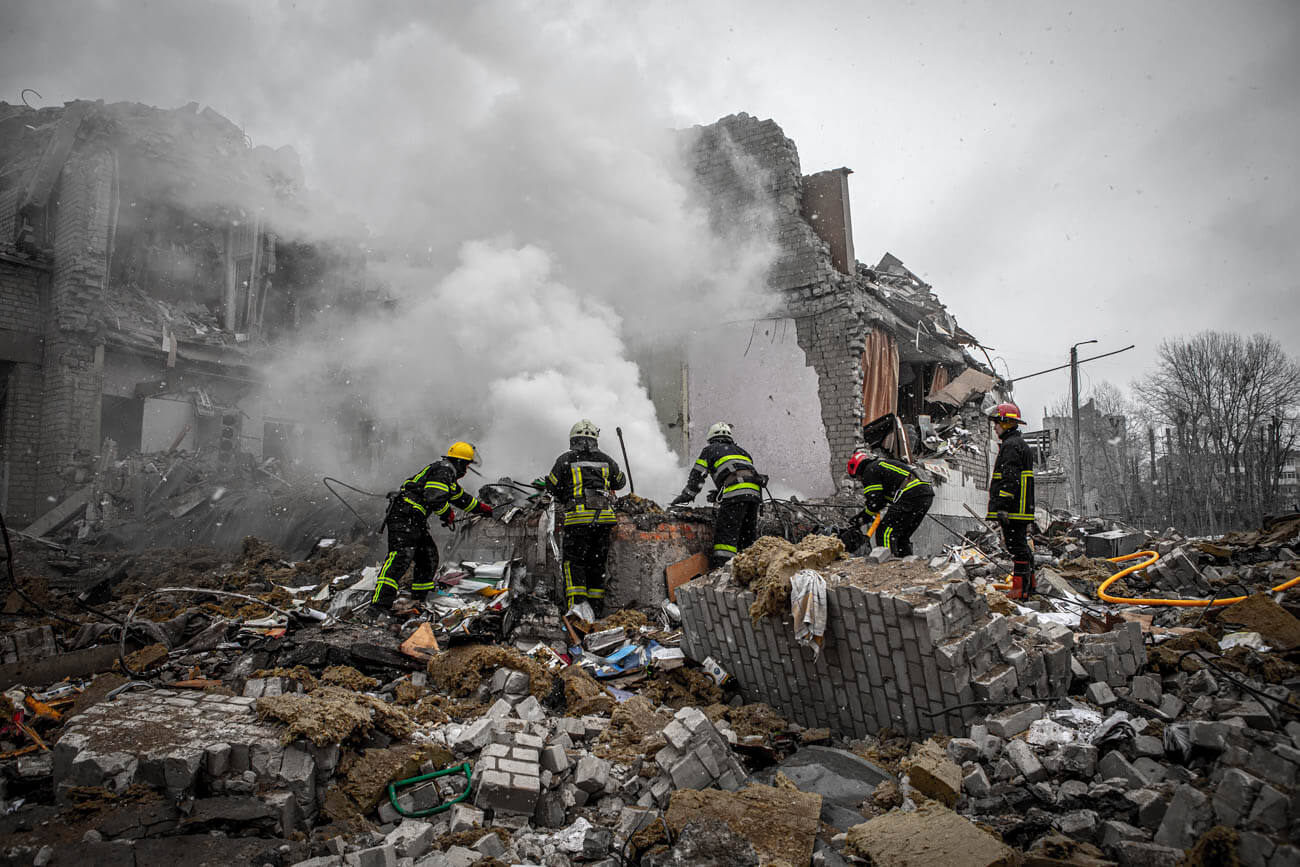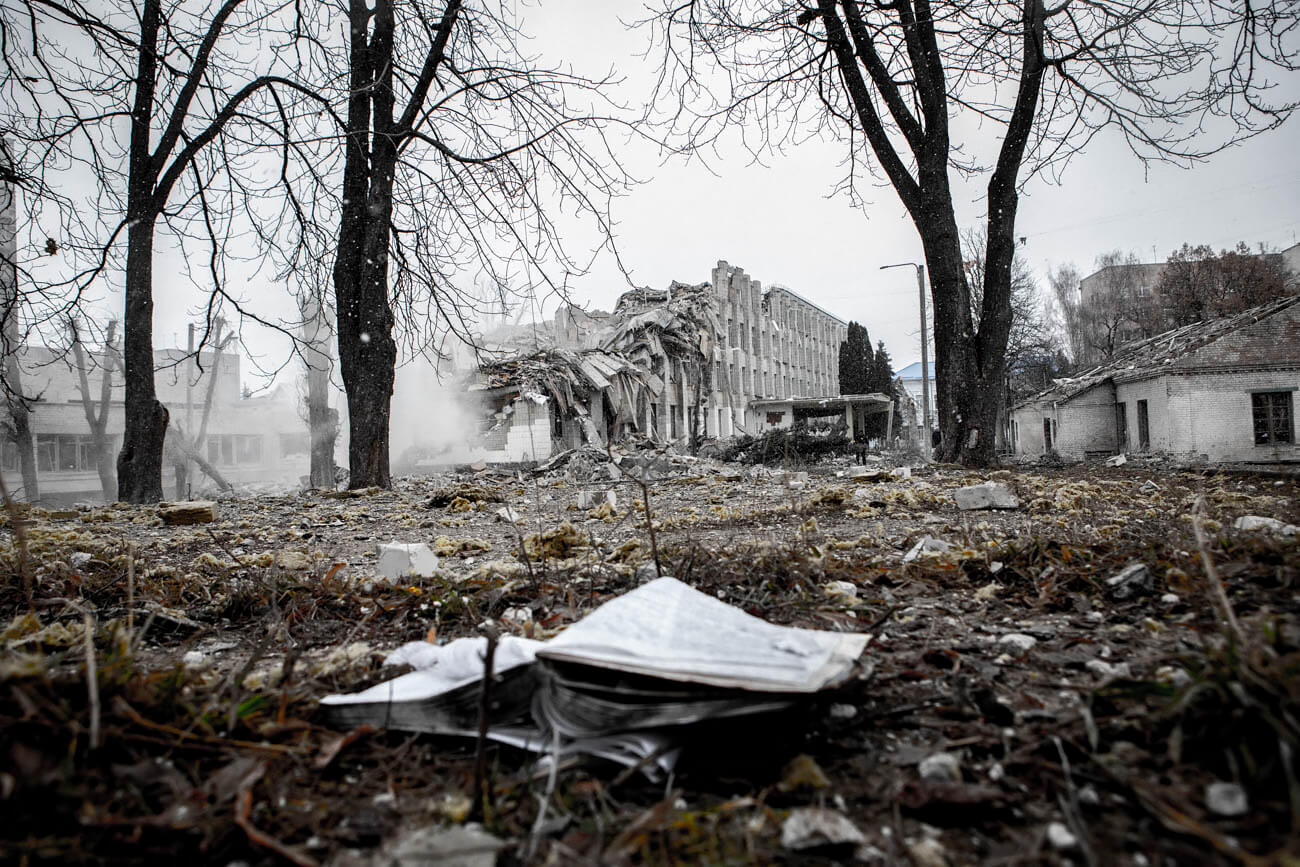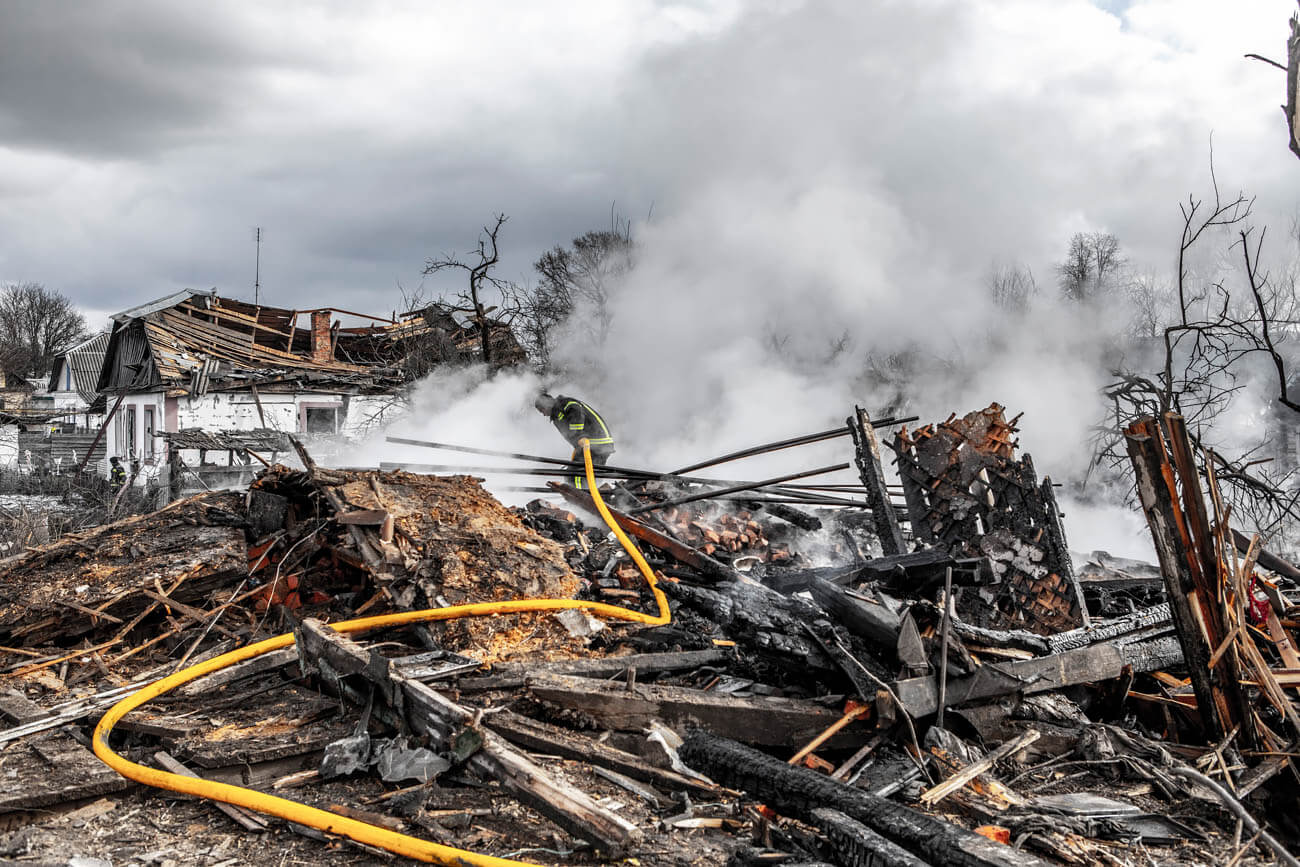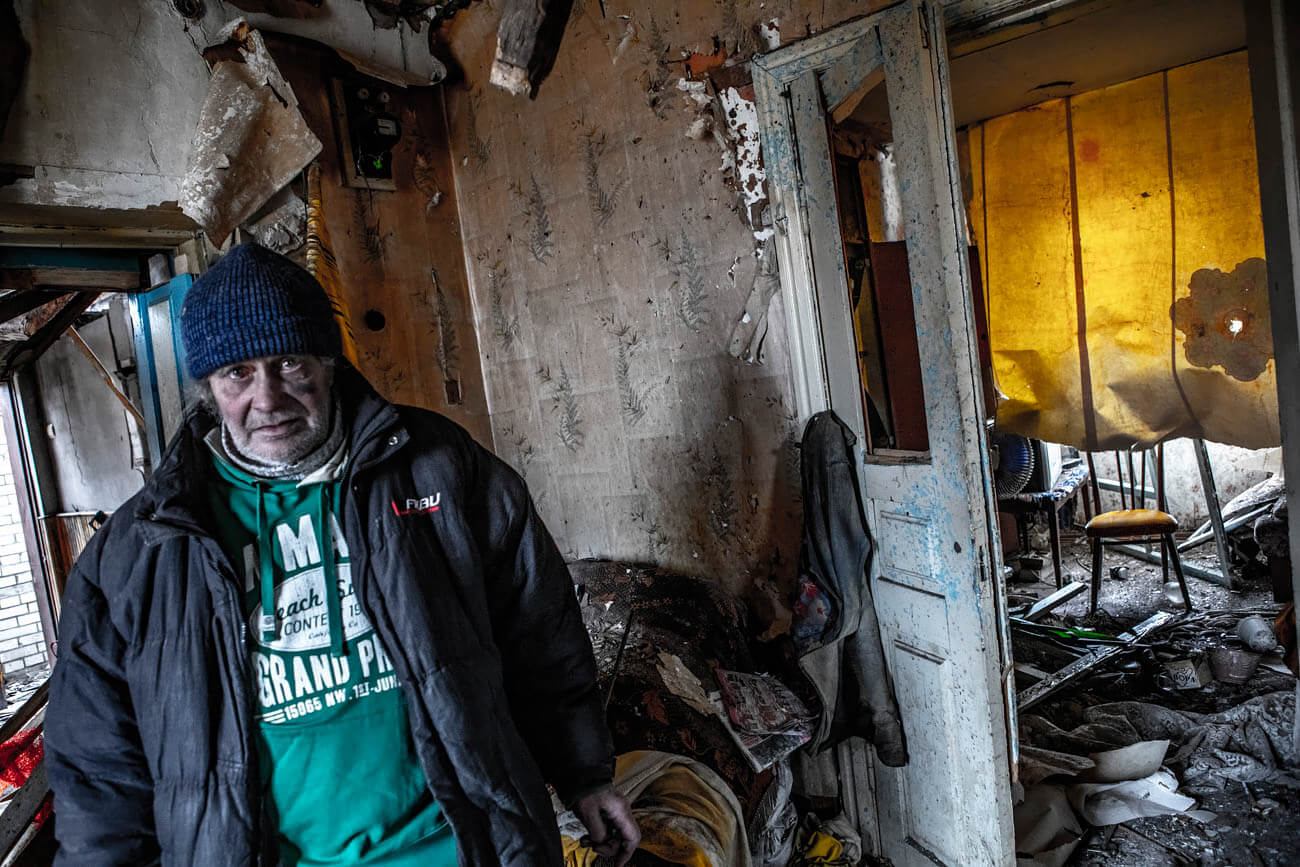I went to Ukraine on the first day of the invasion and spent three weeks there. I met incredibly brave and determined people. Now I am going back to Ukraine to continue my work. Here are some stories of people who had to learn to live with the fact that their country became a war zone...
An ominous silence hangs over Ukraine's Malyn. It's only morning, but the sky is dark with flakes of snow drifting down. The navigation leads me to the centre, but over a bridge. And it was recently shot down by the Ukrainian army to prevent the Russians from advancing further inland. They are about 50 kilometres from here and they are constantly shelling or bombing the town. My car has to cope with a detour around the bridge - I drive down the muddy road down a steep slope onto a pontoon bridge. The Ukrainian war is giving not only me a hard time, but also the car, the roads off the main routes are terrible, full of unpredictable holes. Soon I'm in the centre. The spacious square is dominated by a church with golden domes. Destroyed. Nobody's there. Finally I find a guide - Sasha Holub, the deputy head of the cultural centre. And soon we drive to the place where Russian planes attacked on the night of March 9. There is nothing but destruction and devastation all around. The destroyed houses are located on the outskirts of Malyn, there is nothing around, just family houses. No strategic object, no soldiers.
"They want to scare us into leaving, they want to spread panic," says Sasha Holub. He sadly shakes hands with an old man coming out of one of the affected houses. He has a blank look, a bruise on his face and is still visibly in shock. In front of the ruins of his house lies the man's body, covered with a blanket.
"That was Ivan, the neighbour, he wasn't as lucky as me, " he nods his head. I walk out to the crater left by the bomb dropped from the plane. It's actually unbelievable that anyone in the area survived. I walk on to the neighbours whose house survived. They're packing up. So are a lot of other people from Malyn.
"Close the airspace, please, close the sky, can't you see what they're doing to us?" cries another neighbor named Vasyl. Everyone is shocked by the brutality of the attack.
Sasha shows me another house where a whole family died during the night. A father, a mother and two one-year-old twins. A few hours later, the remaining relatives put the whole family in the grave. A short ceremony, a quick farewell. The grandmother and grandfather of the little twins are crying.
"What kind of animals did this, they were my grandchildren," his voice breaks in pain and he turns his head and eyes away, watering. A few days later, another report comes in about the bombing of Malyn.
The town of Korosten, a railway junction, has also had several rocket attacks and bombings. Again the same thing - bombs and rockets hit a residential area, far and wide the only strategic object. Fifteen houses destroyed and about a hundred apartments in the adjacent housing estate also damaged. People are desperately digging out of the rubble whatever can still be used. The terror unleashed by Putin's planes has had its 'results'. Five million people have already left Ukraine; the total number of people who have left their homes has reached ten million.
However, there is still a majority of people who remain, and many of them are actively involved in the defence of their homeland. For example, in Zhytomyr, the centre of Volyn. In the first half of March, Zhytomyr was already very depopulated. Only those who decided to persevere and defend their town, located only about 120 km west of Kiev, remained. The city is the headquarters of the 95th Air Brigade of the Ukrainian army. It is the seat of a military university, and in short, Zhytomyr is the military centre of the region. And therefore a target for the invading Russian army to eliminate.
The formerly bustling pedestrian zone is empty. But that changes when you step into the Dim Tribela restaurant. The design environment of one of Ukraine's best restaurant has been transformed into the heart of the resistance to the invasion. There is a kind of general staff of people, men and women, who coordinate and manage material aid for the men on the front lines. And Vitaliy Shoshulin, the restaurant operator, takes care of everyone here, too. His place has always been one of the top in the gastronomy industry and even in times of war he doesn't want to spoil his reputation. People bring what they have at home, but help has also arrived here from other parts of Ukraine or from abroad. Zhytomyr has simply pulled itself together. This can be seen in the local town hall, which is run by a mayor who is physically not dissimilar to President Zelensky. Serhi Sukhomlyn has been sleeping in the town hall since the beginning of the invasion; they brought him a mattress and a blanket. He has the management of the city firmly in his hands. He has the support of the locals, as does Zelensky, although most Ukrainians I spoke to told me they did not vote for him. But they added in the same breath that it is not important now and the country needs to stick together.
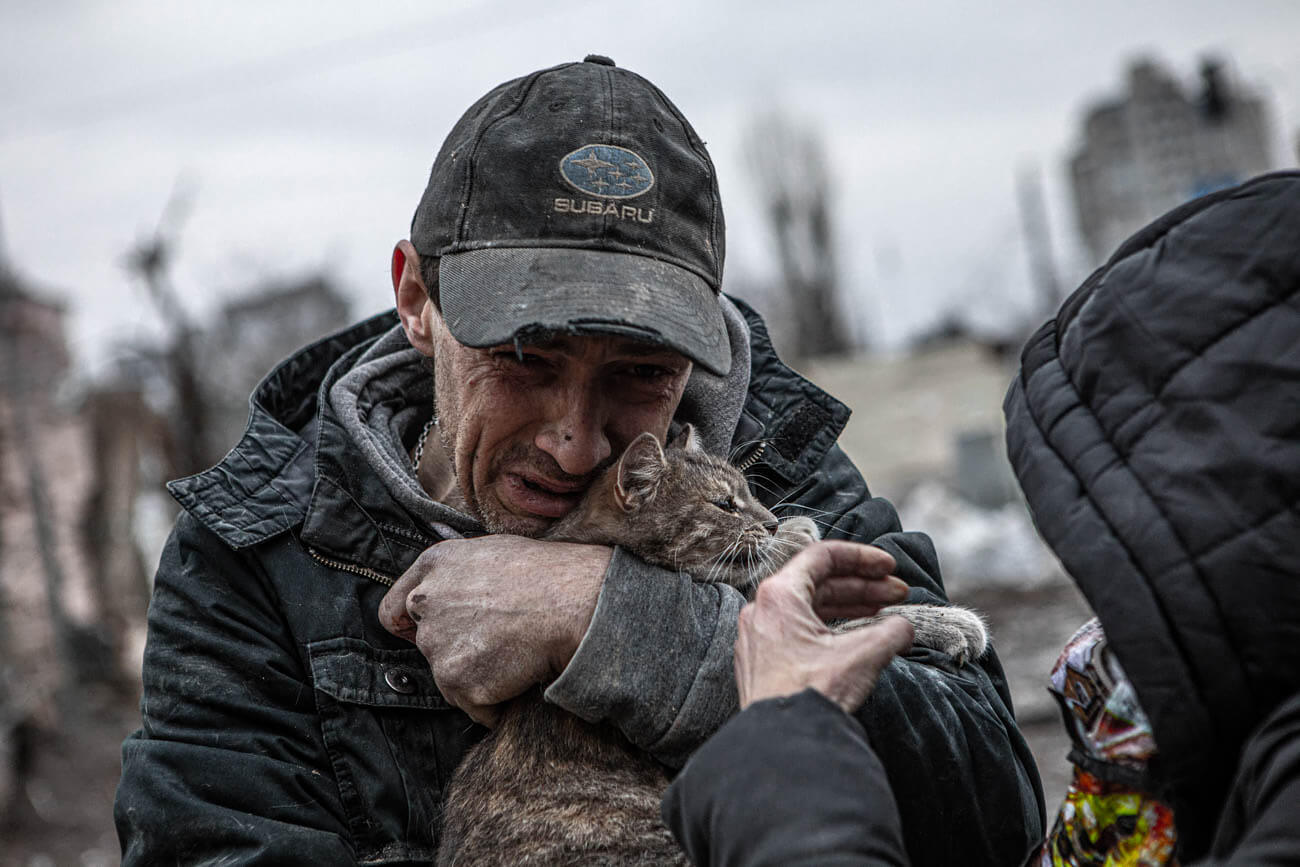
The town hall in Zhytomyr is not a safe place. The governor's office is right next, and these 2 objects are strategic targets for Russian shelling. There was also a school next door, and on the morning of 4 March, rockets landed on it and practically destroyed it. They also destroyed Alexander's house. At least he was lucky in that, although an aerial bomb landed right next to his house, the whole family survived. Including the three cats.
Sirens are blaring, and I'm going with the others to the shelter under the restaurant. I mean, the basement, where the kitchen is. This is where I meet Yulia Chepyukova, now a soldier in the Ukrainian armed forces. Yulia is 32 years old and studied classical philology, Latin and ancient Greek. When the war broke out, she waited for nothing and immediately volunteered. Her partner Sasha is also a soldier, fighting in the Donbas. Yulia pulls a phone out of her uniform pocket and talks to Sasha during the air raid.
"He told me that the army has now made a special arrangement to allow remote marriage. Sasha just proposed to me!" She tells me with a happy smile.
"And what did you say to him?"
"Yes, I will marry him! And quickly," laughs Yulia. They're going to have a long-distance wedding, via some app. Yulia gets in my car and we drive home together for a visit. Mum Tamara greets us with hot soup and some cognac.
"I have many relatives in Russia, my parents live there too. Do you think they believe me, what is happening here? They think I'm making things up, that Russian bombs are falling on us!" he says angrily. Julia finally takes a shower, puts on her make-up and tells her mother that she is getting married. It's sure to be a memorable war wedding...
The village of Bilohorodka lies on the western edge of Kiev, with Russian-controlled territory just two kilometres away. The village is under constant shelling. I stop at an Orthodox church with a spacious garden. In a few moments I am face to face with another of the strong personalities I met in Ukraine. Priest Venceslav invites me in - to the crypt under the church. In front of me is a large apartment with a large kitchen and two more rooms converted into bedrooms.
"There used to be about thirty of us here, now about twenty, some have already left. But we decided to stay until the final victory," smiles Venceslav. He coordinates deliveries of medicine and food to the front and blockposts held by the Home Guard. Every day the women cook for the fighting men in the underground here, and in the morning the soldiers come to get the food and distribute it further afield. The shelling here rumbles practically constantly. Something falls even beside the road, when I leave I see only smoke and I try to drive away as fast as I can. On the way, almost while driving, Vasyl jumps into my car, he also needs to get away, to Kiev.
But Kiev is not safe either. Rocket strikes are hitting the housing estates on the outskirts of Kiev. I'm heading northwest, to the hospital near Irpin and Hostomel, which are being fought over fiercely. Kiev's eighth municipal hospital has become a frontline military hospital because of this. Every day they bring in around thirty wounded, depending on the intensity of the fighting. Now they brought in a soldier with shrapnel in his body. His nose is blown off. He's already on the operating table and two doctors are pulling out one piece of ammunition after another. Then, in another Kiev hospital, OKHMATDYT, Ukraine's largest children's clinic, I meet a similarly wounded 13-year-old boy. Volodya was fleeing with his mother and other family members from the scene of the fighting when they came under fire. His father, aunt and cousin never made it to the station with them. They died on the spot. Volodya was lucky, although he has a bullet in his jaw and two more in his spine...
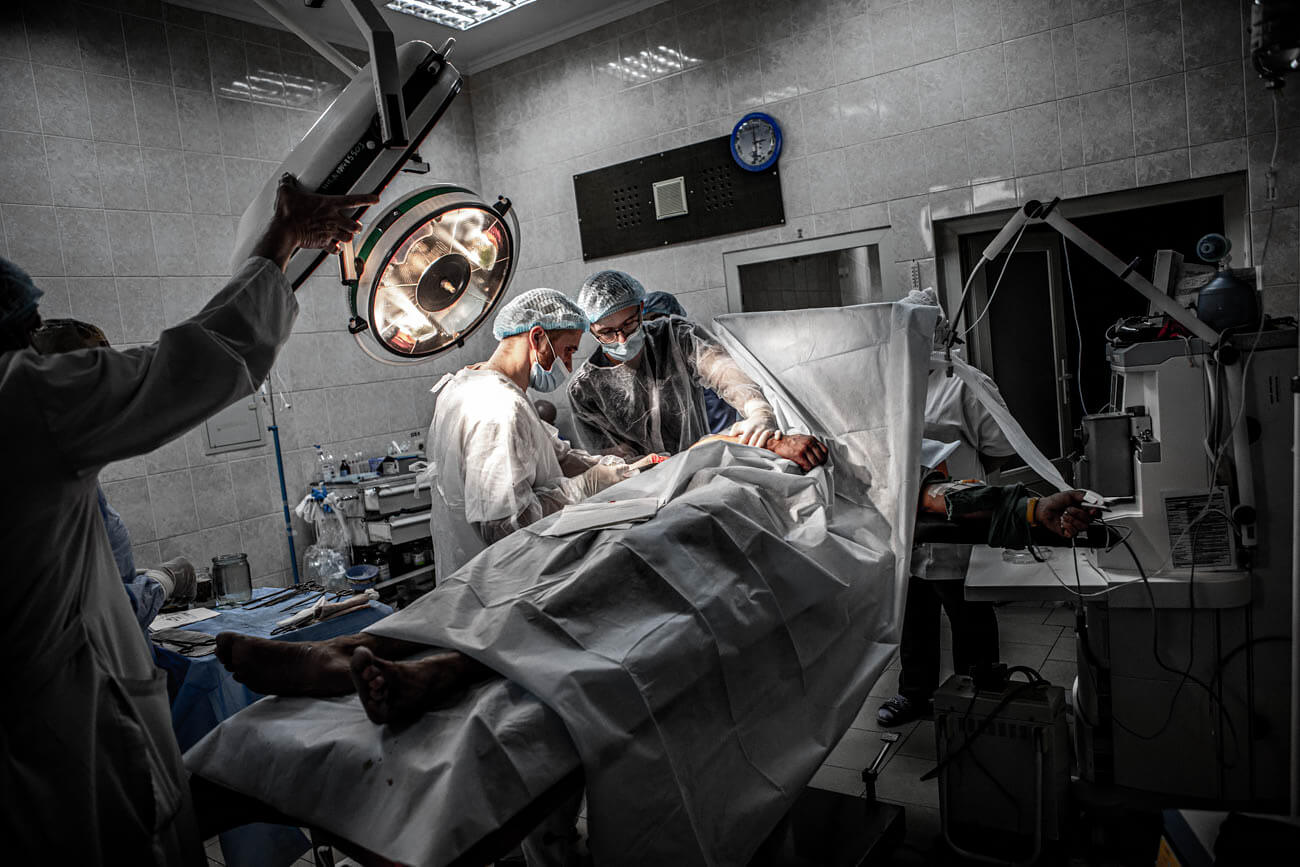
Journalist and photographer. She obtained a master's degree at the University of Hradec Králové and immediately after that started working as a journalist. From 2004 to 2018 she was the editor-in-chief of the leading Czech travel magazine Lidé a Země. Since 2018 she has been working as a freelance reporter and photographer focused on war zones. She has worked in a number of African countries, including conflict zones of Democratic Republic of Congo. She visited Afghanistan several times, as well as Somalia, plagued by several decades of war. Since 2014, she has focused on the issue of the war with the ISIS in Iraq and Syria. She is the co-author of several documentaries (Tears of the Congo, Latim – the Circumcised, Iraqui Women, Women in the Land of Taliban, Unbroken) and a number of television reports. She has won a number of prizes and nominations in the
Czech Press Photo competition - both for photography and video. In 2020 she was included in the prestigious
Women Photograph database, she was shortlisted for the
International Women In Photo Association Award.
She is the co-author of nine books about Africa and about the wars in the Middle East and Nagorno Karabakh. Her work from Syria resulted in two books entitled In Sight of the Islamic State I and In Sight of the Islamic State II, which were co-authored by Markéta Kutilová.
Together with Kutilová she also wrote other books on the wars in Syria and Iraq: In the War (2018) and War is My Fate (2020). In 2019, a book called AK47 was published, which depicts the dramatic life of the world-famous Czech war photographer Antonín Kratochvíl. Klicperová wrote the text of the book based on Kratochvíl's narration. In September 2020, war broke out in Nagorno Karabakh. Lenka Klicperová and Markéta Kutilová quickly moved to the center of events. The war in the Caucasus was captured by both reporters in many reports, but also in a book The Last One Sets the Village on Fire (2021).
Klicperová cooperates with a number of Czech media. She also lectures at the University of Hradec Králové.
Lenka Klicperová's Website
@lenkaklicperova
Lost War
All about Lenka Klicperová
